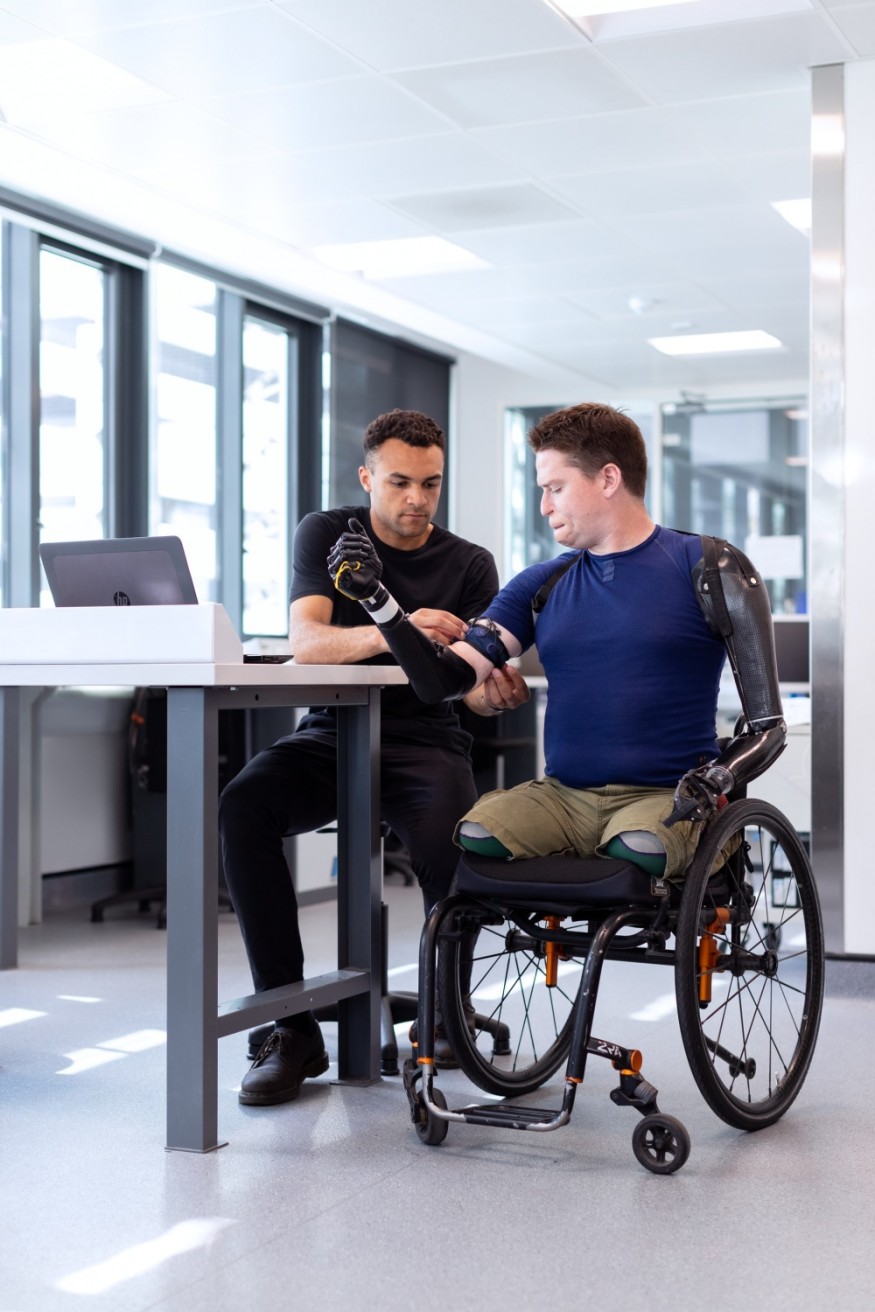Cionic and Yves Behar-owned fuseproject collaborate to build wearable clothing that can enhance, analyze, and predict human movement. The project is based on Cionic's advanced mobility technology that improves a person's walking and strength, as well as full leg assistance. Motivated by his daughter's journey with cerebral palsy, Cionic Founder and CEO Jeremiah Robison, is driven to improve mobility for the hundreds of millions of people who live with reduced mobility.

Cionic and Fuseproject Collaboration
Cionic Founder and CEO Jeremiah Robison said that creating bionic clothes that can enhance human movement requires careful planning and an all-encompassing strategy. It starts with cutting-edge technology that can adjust to the mobility requirements of each user to produce worthwhile results. Then, it is created to be simple to use and comfortable to wear.
"Ultimately, we are creating not just a single solution, but a platform for bionic clothing that can analyze, predict, and augment human movement for all," said Robison.
It was imperative for the fuseproject team that the product removes the emotional burdens associated with having a mobility difference, in addition to providing significant improvement for the user physically.
According to Behar, such a mission means that it is necessary to co-create a product with potential customers in order to fully comprehend their needs. He said that good design helps humanize technology and offers solutions that can change people's lives.
Cionic Features
Fuseproject's sleeve design for the bionic startup CIONIC provides users with motion rehabilitation and new freedom of movement, leading to more fully engaged and independent lives. The result is a complete and adaptable solution that sheds light on the potential for bigger, more scalable mobility solutions in the future.
The Cionic Neural Sleeve is made for daily wear and, more importantly, is simple to put on and take off, which is a crucial design feature for people with restricted movement.
The breathable, lightweight fabric, which comes in a variety of colors and sizes, has the feel of sports leggings. The sleeve gives the user control over their mobility journey when used in conjunction with the user-friendly Cionic app.
Cionic Experiment
Participants in the Cionic experiment across various sites showed significant progress on the two crucial metrics related to foot drop: dorsiflexion at heel strike and ankle inversion during a swing. Notably, there was an average improvement of 9 degrees for the participants (5 degrees is clinically significant). when the two measurements were combined.
In order to understand how the Neural Sleeve affects mobility over time, Cionic has also been performing usability tests at home.
In addition to observed mobility improvements for many of the users, there has been a 60% reduction in the number of users reporting moderate to severe pain and a 75% reduction in the number of users reporting moderate to severe anxiety or depression.
After customizing the Neural Sleeve for two of her MS patients, Dr. Jacqueline Nicholas, system chief for neuroimmunology and multiple sclerosis at the Ohio Health MS Center, saw them walk better than they had in ten years. Nicholas said, that it is the first comprehensive system that addresses key muscle groups, potentially improving mobility and function with continued use.
RELATED ARTICLE : Mitt Wearables, to Launch Customizable, Affordable Prosthetics in the Market Next Spring
Check out more news and information on Technology in Science Times.
© 2026 ScienceTimes.com All rights reserved. Do not reproduce without permission. The window to the world of Science Times.












